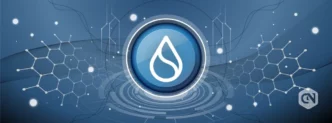Avalanche wrote an official blog post to let the community know that the Cortina upgrade is getting closer to being put into place. The scheduled activation date is March 31, 2023, at the time of drafting this article. X-Chain is now ready to switch to Snowman++ consensus, which will make the chain work with Avalanche Warp Messaging. This benefits X-Chain since it will be able to seek support from different exchanges.
The development will be executed by AvalancheGo. It has been hailed by the members, who say that lower gas fees and faster execution are what they wanted.
It further means that the network has moved to a single consensus engine to boost faster development and innovation that can be applied to a variety of use cases. The migration basically cuts down on the size of the trusted computing base, which makes it easier to put more effort into R&D.
Another development under the Cortina Upgrade is related to Batched Delegator Rewards along with an increase in the gas limit for C-Chain. Cortina and Batched Delegator Rewards work in collaboration, with Batched Delegator Rewards first simplifying the reward distribution process for validators that have large numbers of delegators. Cortina then modifies the manner in which the delegation fee is distributed for validators at that stake after the Cortina Activation.
Advertisement
The development will remain unchanged only for validators who have already staked their claim in the ecosystem.
Fee distribution through the Cortina upgrade happens in two simple steps. First, the fee is batched during the period of validation. Then, the same is distributed after being unstaked by users.
The C-Chain gas limit has increased to 15M gas from 8M gas per block. This comes after the developers who have put decentralized applications on the network submitted their feedback. The need for a higher gas limit arises as the gas per block falls short of meeting the use cases. An increase to 15M gas is, suffice to say, helpful to developers who are looking to deploy their decentralized applications on the network.
In addition to the deployment of decentralized applications, the increase in the gas limit will also help in the execution of complicated transactions through a single block. To keep the number of resources needed to validate the Primary Network from going up, the gas target will stay at 15M gas per 10s.
Per the official announcement, the pre-release code will be published on March 27, 2023, and the same will go live on March 30, 2023, at around 3 p.m. UTC. The code will work only on Fuji and exit the system if an attempt is made to run on the mainnet.
Advertisement
Users can upgrade their nodes simply by starting AvalancheGo v1.10.0. It has been recommended to have a backup staking certificate or key.
Nodes that are not upgraded before the Mainnet activation date will be signed offline. Others will also report them for lower uptime, which may hamper future staking rewards.To conclude, it is best to upgrade nodes to v1.10.0.







